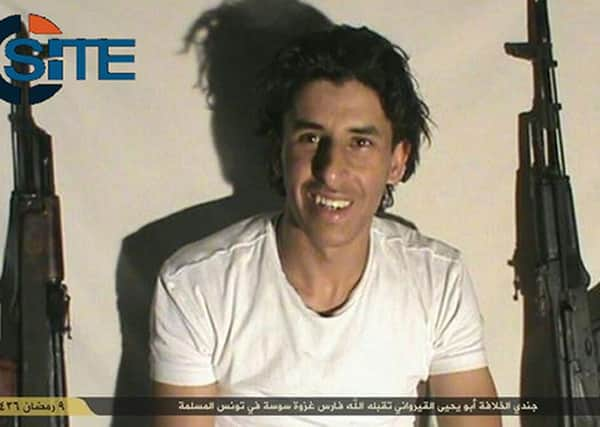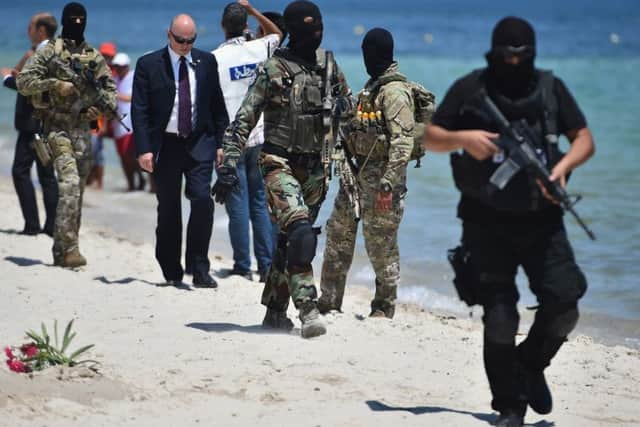Tunisian gunman ‘trained at Libyan jihadi camp’


Investigators were searching nationwide for accomplices in the attack that killed 38 tourists and questioning a handful recently detained.
“It has been confirmed that the attacker trained in Libya with weapons at the same period as the Bardo attackers,” said Rafik Chelli, the secretary of state for the Interior Ministry. “He crossed the borders secretly.”
Advertisement
Hide AdAdvertisement
Hide AdChelli said Seifeddine Rezgui, a 24-year-old who obtained a Master degree in electrical engineering, left his studies at Kairouan University and sneaked into the western Libyan town of Sabratha in January — when the two young men who carried out the museum attack in Tunis were there.


Sabratha, the site of Roman ruins, is one of several places in Libya where radical groups have training camps. The Islamic State, which has a strong Libyan presence, claimed responsibility for the beach resort attack.
There has been no previous indication that Rezgui had left Tunisia.
Rezgui has been portrayed as a good student. A fellow student in Kairouan, Saidi Fedi, 25, described him as a model of magnanimity — but a member of the student branch of Ansar al Sharia, an Islamist group,
“Seif participated in the meetings ... on a lower level. He was not one of the leaders,” Feidi said in an interview, referring to the university’s Islamic Youth group.
“He was the least radical of the group in which he was active. He was one who took part in the debates, and he accepted different views. He didn’t argue aggressively,” Feidi said.
“He didn’t answer with anger” when debating with students who supported the Syrian government. “He didn’t do anything that could give us a clue.
The invisibility of the attacker, like those who carried out the Bardo attack, is for Tunisia and elsewhere, the biggest challenge in preventing terrorism.
Advertisement
Hide AdAdvertisement
Hide AdThe spokesman for the Interior Ministry, Mohamed Ali Aroui, said it was not immediately clear whether Rezgui trained in the same group as the Bardo attackers or whether they were linked to the Islamic State organisation.
But the presence of radical groups in Libya increases the threat level to its Tunisian neighbour, as does the approaching end of the Muslim holy month of Ramadan and its “night of destiny,” which falls in mid-July this year.
The “night of destiny” is considered a propitious time for good actions, which for jihadis means killings, said Mathieu Guidere, an Islamic scholar at the University of Toulouse.
Tunisia has struggled since its 2011 revolution to maintain the fragile democracy it has managed to put in place — the only one to emerge from the Arab Spring uprisings.
At the same time, it is has seen the highest number of its citizens, some 3,000, head to Syria and Iraq to fight with radical jihadi groups, including the Islamic State group.
Guidere, who tracks Islamist groups, cited the Soldiers of the Caliphate of Tunisia, a recent group linked to the Islamic State group, as the most likely suspect behind the Sousse attack.
It claimed responsibility for the Bardo Museum attack. The small group, he said, is made up of some of the 400 to 500 returnees from Syria and Iraq.
There has been criticism of the government’s handling of security, especially since tourists had clearly become a target after the museum attackers killed 22 people in March.
Advertisement
Hide AdAdvertisement
Hide AdPresident Beji Caid Essebsi revealed Tuesday morning that heightened security measures had been scheduled to be put in place just days after the beach attack.
Armed tourist police are to be stationed at hotels and army reservists called up in a bid to staunch damage to the vital tourism industry - a lifeline for the Sousse region.